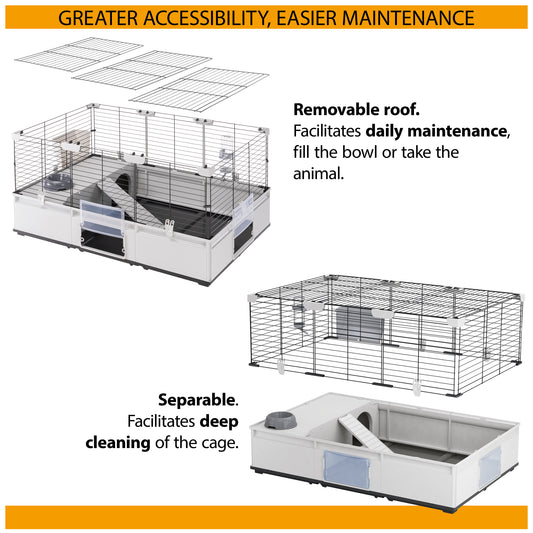All cats can experience stress from time to time but some pets definitely seem to be more highly strung than others. Long-term stress can result in a cat becoming emotionally and physically unwell so owners sometimes need to step in to help their pet to keep calm and carry on.
What causes stress in cats?
Cats can become stressed when they are fearful, anxious, frustrated or depressed. This can be caused by conflict with other cats, restricted access to resources (such as food bowls and litter trays), or environmental factors like changes to the home. Stress can also be an emotional response to pain which a cat will naturally try to hide as a survival instinct.
What are the signs of stress in cats?
Common signs that a cat is experiencing stress include:
- Being withdrawn or hiding
- Being less tolerant of people
- Change in eating habits
- Increase in scratching
- Overgrooming or excessive licking
- Increase in vocalising
- Reluctance to play or interact
- Pacing/being unable to settle
- Spraying in the home
Check it out
If your cat is displaying any signs of stress, it is very important that you get them checked over by your vet as soon as possible. If the stress is caused by a reaction to pain, your cat may need medical attention.
If your cat has been checked over by a vet and is found to be in good physical health, you can try to get to the source of their stress. If you find that your cat’s behaviour change is linked to them being unhappy about something – such as the location of their food or having to share a litter tray if you have more than one cat – this can be easily changed. However, for cats that are naturally nervous or particularly sensitive you may need the help of some calming products to enable them to chill out.
If you are concerned about the level of stress your pet is experiencing, ask your vet for a referral to a feline behaviourist who can make a thorough assessment of your pet’s emotional needs.
Calming products to try
When it comes to calming products, there’s no ‘one-size fits all’ approach for cats. You might need to try out a few different things until you find what works for your pet.
True Hemp Calming Cat Treats contain hemp leaf, ground hemp seed, green tea, chamomile and lemon balm to help relieve tension and help to make your pet more mellow. They work in the same way as a comforting cup of herbal tea might for us and cats find them irresistible.
Dorwest Herb’s Valerian Compound has been designed to help cats and dogs during times of stress by quickly calming them. The concentrated herbal extracts are fast-acting and an owner should see a change in their pet within just 30 minutes. The liquid is easy to administer via a dropper, either directly into a pet’s mouth or added to their food.
Pet Remedy is a natural stress-reliever that works alongside the brain’s neuro-transmitters to calm the nerves. The Pet Remedy formula is made up of a blend of essential oils including valerian, vetiver, sweet basil and sage, and can be administered either through a plug-in diffuser or as a spray that you can use on bedding or in the car.
Cats communicate through natural scent messages that are released from different parts of their body (such as their face, mammary area and paws) but are odourless to us. A mother cat will give off pheromones when she is nursing her kittens to calm them and a manufactured version of this is available in plug-in diffusers and sprays.
You can also get calming collars for cats that are impregnated with ingredients such as valerian and lavender that help manage stress levels. Worn around the neck like a normal cat collar, they are fast-acting and effective for up to six weeks.
Creating a calm home
There are some things you can do at home to help create a calmer environment for your pet:
- If you have more than one cat, ensure that each one has sufficient space and resources of their own to prevent conflict.
- Make sure your cat has access to comfy and warm safe places around the home to hide away when they want to rest.
- Boredom can lead to stress so ensure your cat has plenty to do. Encourage them to exhibit natural behaviours, such as climbing, pouncing and scratching through play.
- Cats thrive on routine and stability in their day-to-day life so if your pet is particularly anxious, try to limit changes.
If you enjoyed this article, have a look at:









